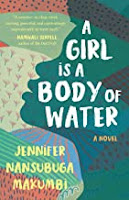It was the best of times. It was the worst of times. It was the year 2020, the annus horribilis, when we witnessed the most heroic and the most despicable actions from our fellow human beings. It was a year of remarkable resiliency and the discovery of innovative ways for the world to remain connected. Teachers, writers, performers, and just plain old bored families lifted our spirits with their Zoom creativity. Reading, once relegated to a few stolen moments of time, became the salvation of many an isolated soul.
Reviewing my favorite novels of 2020, I looked for a theme, a common message that might have run through them, and no surprise, in all but a couple of titles, the overarching emotion is loss tempered by hope. I find that I can no longer name favorites in the old way, numbered one through ten. My answer would be different depending upon the day or even the hour. But I have been able to alight on ten titles and authors that made me close the final pages and just say “wow!”
Ayad Akhtar’s
achingly intimate novelized memoir “Homeland Elegies” made me
laugh, despair, and gasp in shock as he tore at the wounds of a dark-skinned
Pakistani-American’s struggle to assimilate in a post-9/11 New York, unable to understand his father’s blind embrace
of all things capitalist, including D J Trump, even as both father and son
succeed beyond their wildest dreams.
“Little Family” by former child soldier Ishmael Beah portrays five children, wise beyond their years, with exquisite tenderness as they band together for safety in an abandoned airplane that crashed in an unnamed African country. Forming a natural hierarchy the little family survives stealing food by day and telling stories into the long, nightmarish nights.
“The
Death of Vivek Oji” is a haunting novel from Nigerian-born author
Akwaeke Emezi which presents a searing examination of gender dissonance, sexual
attraction, and familial love and loyalty. Through Vivek’s vivid flashbacks we
meet a sensitive child prone to bouts of depression and angry outbursts that
reflect his fear that his true nature may always have to remain invisible to
the world.
Colum McCann’s “Apeirogon” renewed my faith in human nature during a year when I was losing it. Based on a true story, this exquisite novel about two fathers, an Israeli and a Palestinian, each wracked by the loss of their young daughters to the insane violence that pervades the middle east, form the organization “The Parents Circle” traveling the world, telling their story, and bringing their daughters back to life for anyone who will listen. (My deeper review here: http://readaroundtheworld-sallyb.blogspot.com/2020/09/colum-mccanns-apeirogon.html)
“Migrations”
knocked me out not only because this is the first adult novel by Australian
writer Charlotte McConaghy but because it was so inventive. I kept having
to go back and forth through the chapters to be sure I’d really understood what
I thought I’s just read. It’s about climate change, specifically about the
migration of the last living Arctic terns as they make their way from Greenland
to Antarctica, but it’s also about love, those who stay and those who leave,
and a woman, Franny Stone, whose peripatetic life was set in motion when she
was abandoned by her mother at the age of ten.
Tomorrow I’ll share my other five faves. In the meantime, happy reading and my deepest hopes for a 2021 we can all be proud of.














